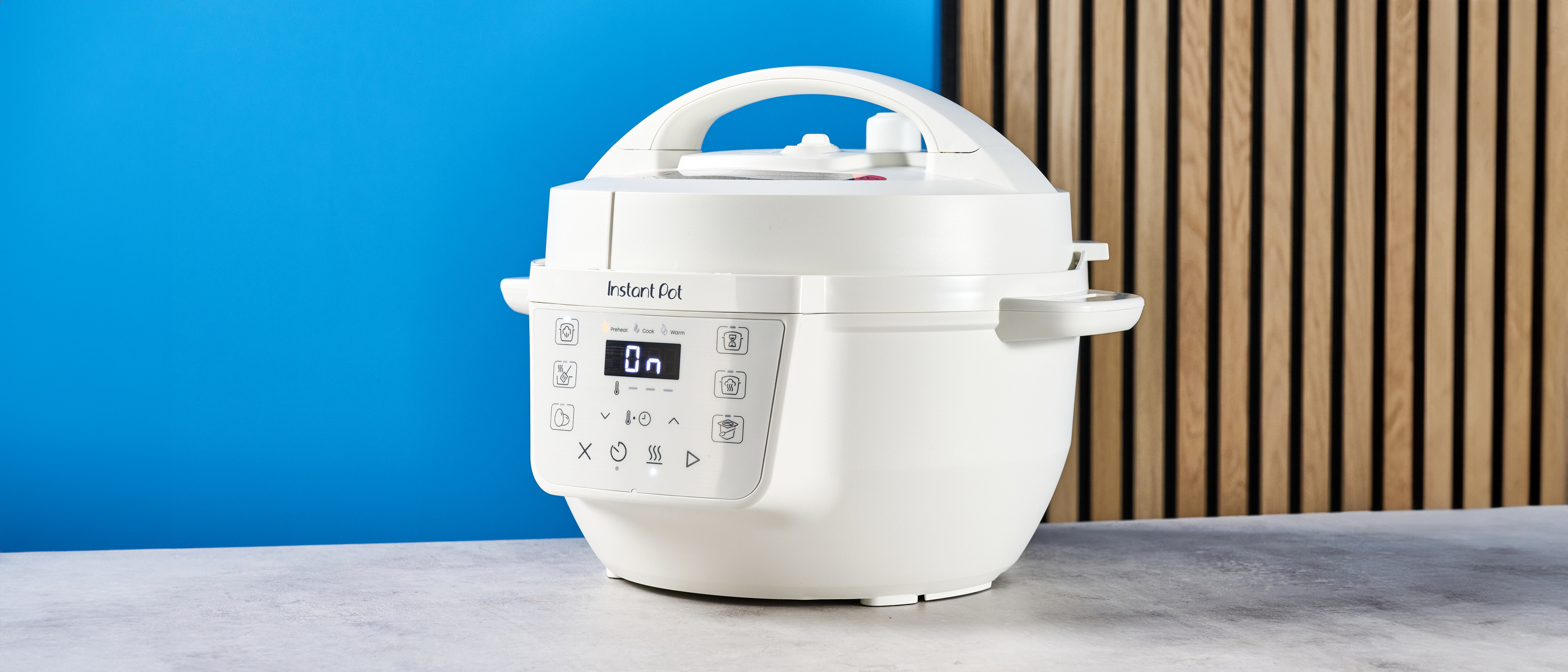MacBook Air M2 vs Dell XPS 13 Plus benchmarks: Which laptop wins?
Intel's 12th Gen laptop chip goes up against Apple's M2
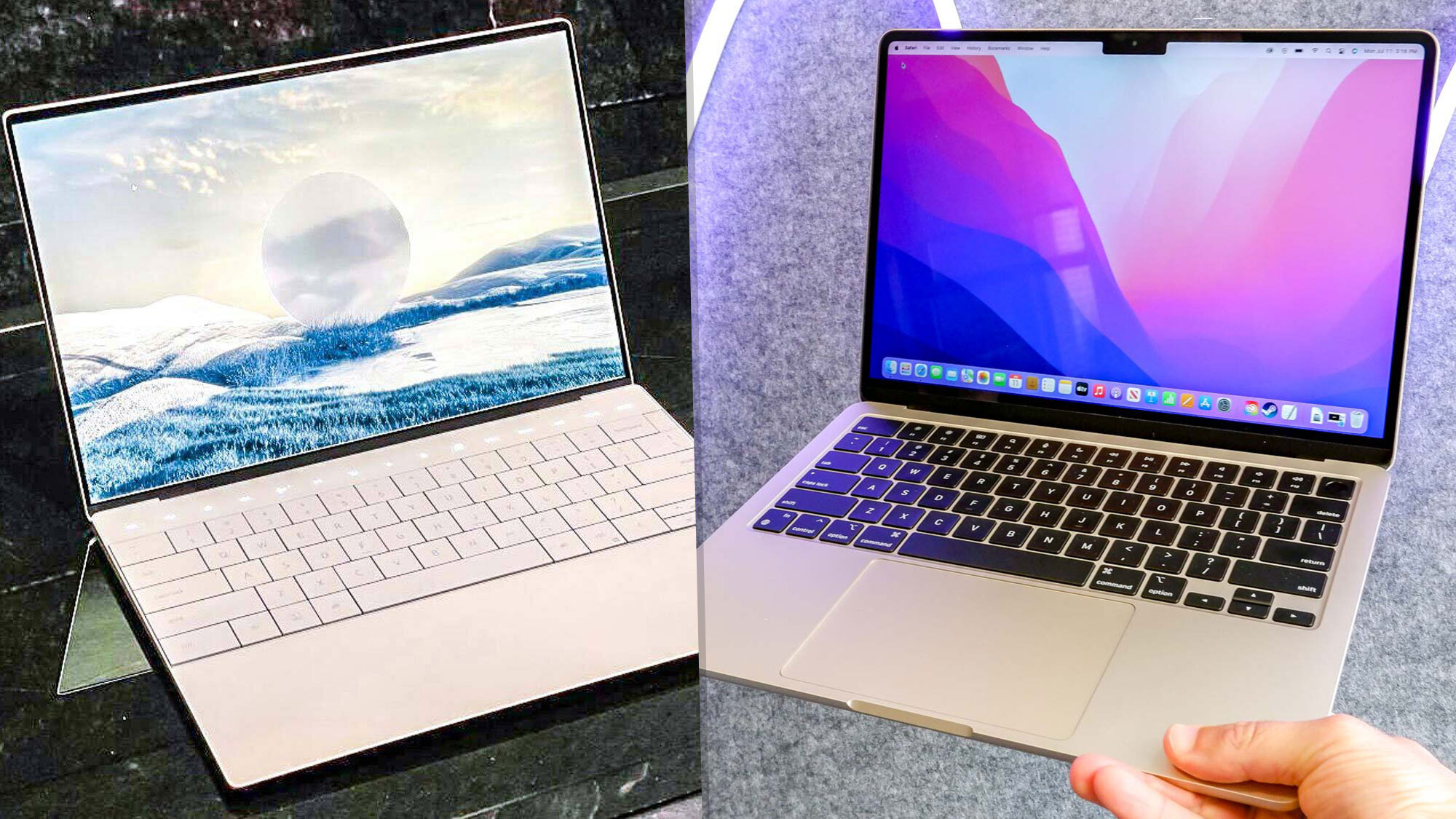
The Dell XPS 13 Plus appears to be capable of outperforming Apple's new MacBook Air M2 in terms of raw CPU power, which means Apple silicon still faces serious competition from Intel's new Alder Lake laptop chips.
We know this because we're currently testing an XPS 13 Plus with an Alder Lake Intel Core i7 CPU that Dell sent us for review. That means we'll be updating our Dell XPS 13 Plus hands-on review within the next week or so with a full evaluation of Dell's thinner, lighter spin on an XPS 13, but some of our testing results were so intriguing that we couldn't wait until the review to share them. (You can also check out our detailed Macbook Air M2 vs Dell XPS 13 Plus for a full comparison between the two).
One important caveat here: neither the XPS 13 Plus nor the Air M2 we tested are the entry-level models. Below you'll find a chart comparing the entry-level specs for both laptops (plus the 13-inch Pro M2) for context, but the actual units we reviewed are a bit pricier and more powerful.
The XPS 13 Plus we're testing sports an Intel Core i7-1280P CPU, 16GB of LPDDR5 RAM, a 512GB SSD and a 3.5K OLED touchscreen. To buy the same configuration directly from Dell, you'd pay roughly $1,910 -- though if you ditched the OLED touchscreen upgrade and went with the default 1,920 x 1,200 display, it'd cost closer to $1,616.
The MacBook Air M2 we tested, by comparison, arrived sporting an upgraded M2 chip with a 10-core GPU (instead of the default 8-core), 16GB of RAM and a 1TB SSD. To buy the same laptop from Apple you'd pay $1,899, though if you downgraded it down to a 512GB SSD like the XPS 13 Plus has you'd pay just $1,699.
Dell XPS 13 Plus vs MacBook Air M2: Specs
| Row 0 - Cell 0 | MacBook Air 13-inch (M2, 2022) | Dell XPS 13 Plus |
| Price | from $1,199 | from $1,399 |
| Display | 13.6 inches (2560 x 1664) | 13.4 inches (full HD+, full HD+ touch, 3.5K OLED or 4K LCD) |
| CPU | 8 core M2 CPU | 12th gen Intel Core i5, Core i7 |
| GPU | 8-10 core M2 GPU | Intel Iris Xe integrated graphics |
| RAM | 8GB to 24GB | 8GB to 32 GB |
| Storage | 256GB to 2TB SSD | 256GB to 2TB SSD |
| Ports | Two Thunderbolt / USB-4, mic | 2 Thunderbolt 4 / USB-4 |
| Size | 11.97 x 8.46 x 0.44 inches | 11.6 x 7.8 x 0.6 inches |
| Weight | 2.7 pounds | 2.73 pounds |
Dell XPS 13 Plus vs MacBook Air M2: Geekbench
| Row 0 - Cell 0 | Dell XPS 13 Plus | Dell XPS 13 Plus (Ultra mode) | MacBook Air M2 |
| Single core | 1,797 | 1,757 | 1,911 |
| Multicore | 10,621 | 11,217 | 8,965 |
Most notably, the XPS 13 Plus earned a score of 10,621 in the Geekbench 5.4 multi-core CPU benchmark test. When we put the XPS 13 Plus into its "Ultra" performance mode it scored even higher, netting 11,217. This is a test that, put very simply, puts your CPU through a variety of workloads meant to replicate real-world tasks (creating content, playing games, etc.) and then assigns it a score. The higher the score, the better (or at least, more performant) the CPU.
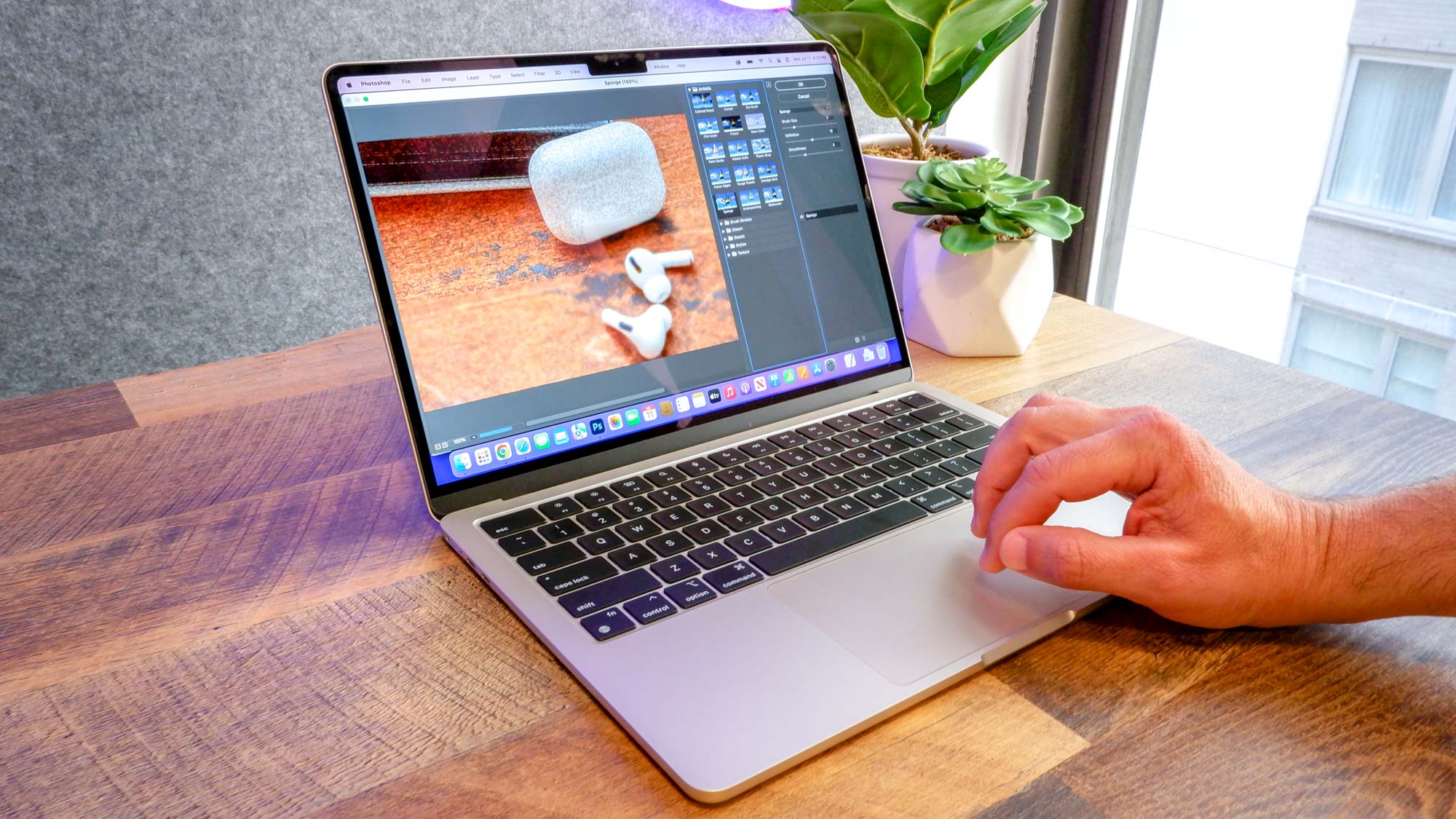
The score earned by the Dell XPS 13 Plus is high for an ultraportable, and it beats the MacBook Air M2's 8,965 score by a decent margin. The MacBook's lower multi-core score vs. the XPS 13 Plus suggests Intel's chip is more efficient at tackling multi-threaded workloads -- that is, apps which can take advantage of multi-core CPUs and issue complex instructions to multiple cores at once.
Get instant access to breaking news, the hottest reviews, great deals and helpful tips.
While both scores are quite good for these thin-and-light laptops, the fact that the XPS 13 Plus blew past the Air M2 in the multi-core CPU benchmark suggests that Intel's latest laptop chips can still muscle out Apple's M2 — even if there's active cooling to keep Apple's silicon cool under pressure.
Because while the new MacBook Air's M2 chip relies entirely on airflow and heat sinks to stay cool, the M2 chip in Apple's new 13-inch MacBook Pro has the added benefit of active cooling via fans. And since we put those fans to the test during testing for our Macbook Pro 13-inch (M2, 2022) review, I know that it earned a score of 8,911 in the Geekbench 5.4 multi-core CPU benchmark. That's roughly the same as the numbers the Air M2 put up, suggesting whatever difference active cooling makes isn't readily apparent in raw CPU tests.
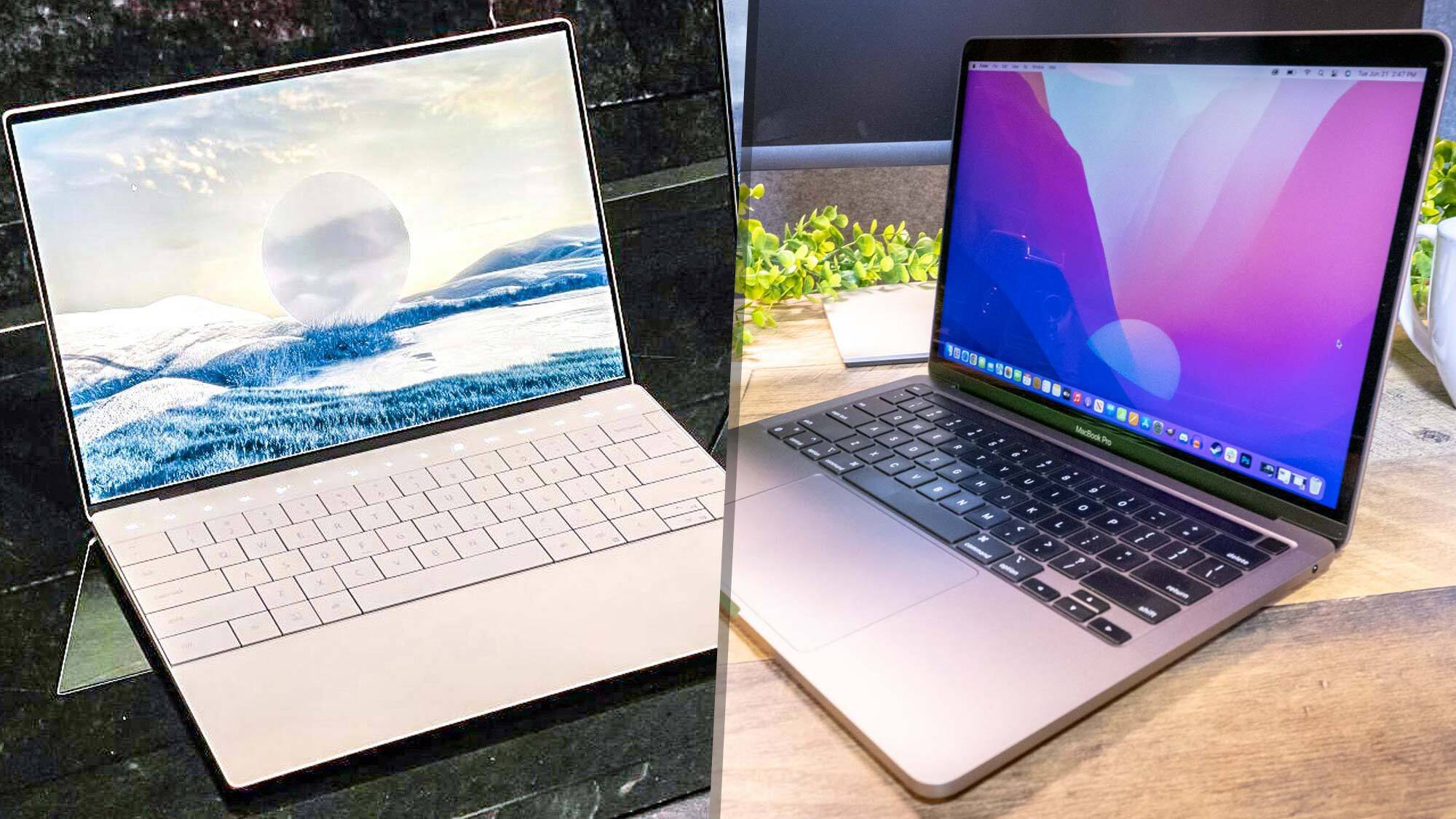
Dell XPS 13 Plus vs MacBook Air M2: Video transcoding
CPU power is just one aspect of a laptop's performance. There are a host of other reasons to buy (or skip) a notebook, including battery life, screen quality, port options, and more. Depending on what you plan to use it for, a laptop's raw CPU power might not even make that much of a difference in your day-to-day work.
With that in mind, let's look at some of the other results from our testing to see how the MacBook Air M2 stacks up against the XPS 13 Plus across the board.
| Row 0 - Cell 0 | Dell XPS 13Plus | Dell XPS 13Plus (Ultra mode) | MacBook Air M2 |
| Time | 8 minutes 31 seconds | 6 minutes 49 seconds | 7 minutes 52 seconds |
When we ran both laptops through our video encoding test, for example, which times how long it takes a notebook to transcode a 4K video down to 1080p using Handbrake, the MacBook Air M2 did the work quicker than the XPS 13 Plus -- until we put the XPS 13 Plus into Ultra mode, at which point it sped past the MacBook.
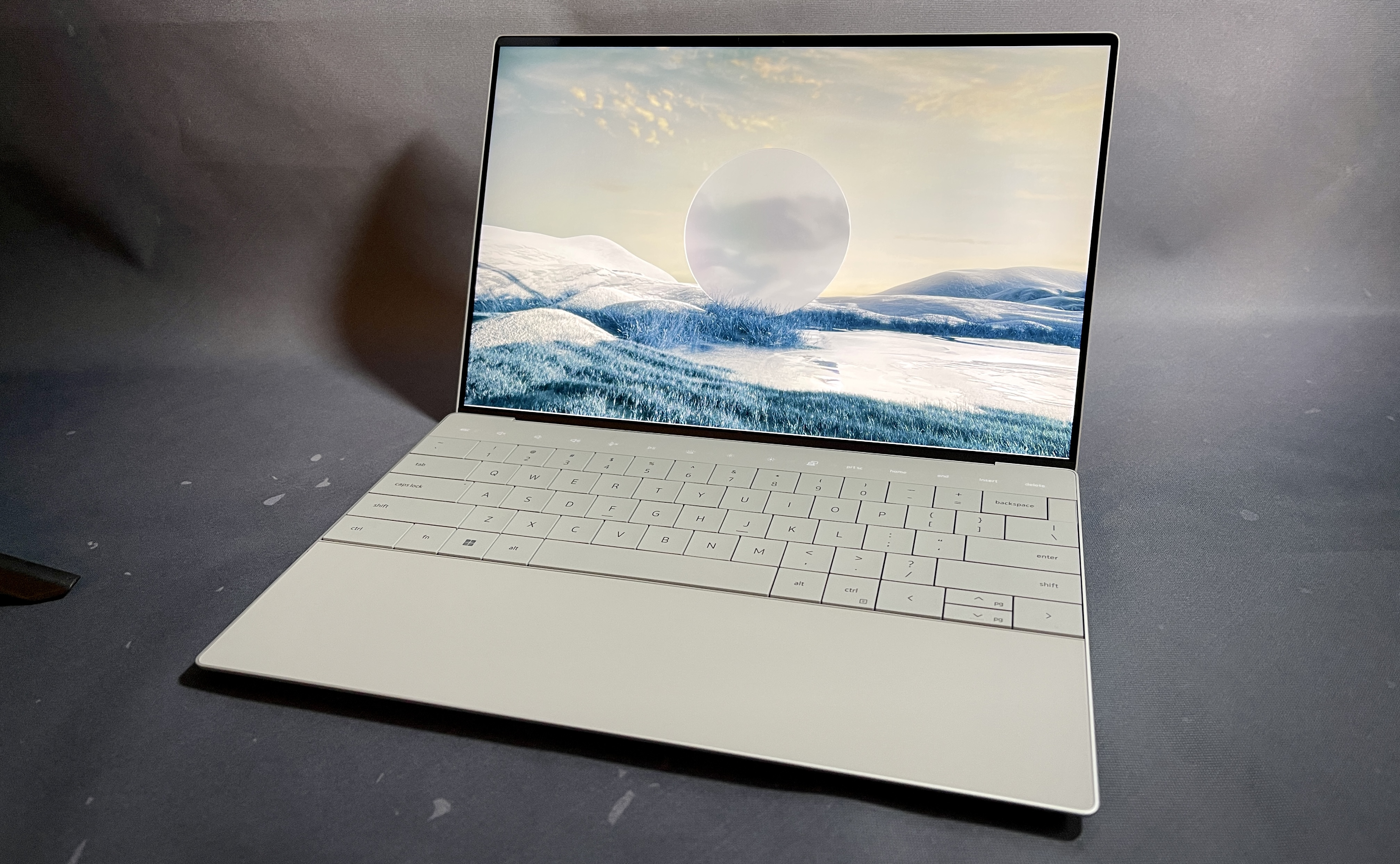
The Air M2 completed the task in an average of 7 minutes and 52 seconds, while the XPS 13 Plus took roughly 8 minutes and 31 seconds on average, though that dropped down to 6:49 in Ultra mode. It's slightly hard to say because we witnessed some unusual results when running this test on the XPS 13 Plus that occasionally saw it completing the test in as little as 7 minutes 20 seconds, but that's so far below the average that we consider it something of a fluke.
Dell XPS 13 Plus vs MacBook Air M2: Photoshop and Premiere Pro
We also ran both laptops through PugetBench's Adobe Creative Cloud suite benchmark tests, using a script which automatically runs through tests for Adobe Photoshop, After Effects, Premiere Pro and Lightroom Classic. Apple's MacBook Air M2 took an average of 4:49 to complete the Photoshop test (running Photoshop 23.3.2 via Rosetta) and earned an average score of 821, while the XPS 13 Plus we're reviewing earned a lower score (670) and took longer (6:28) to do it.
| Row 0 - Cell 0 | 13-inch MacBook Air M2 (2022) | Dell XPS 13 Plus (Ultra mode) | Dell XPS 13 Plus |
| Pugetbench Photoshop test | 821 | 691 | 670 |
| Pugetbench Premiere Pro test | 452 | 325 | 279 |
Likewise, when we ran both laptops through a benchmark test for Premiere Pro, the MacBook Air M2 earned an average score of 452, handily beating the XPS 13 Plus' average score of 279. So clearly if you plan to do a lot of work in Adobe's suite of apps, Apple's laptop has a clear advantage over Dell's latest flagship 13-incher.
Dell XPS 13 Plus vs MacBook Air M2: Gaming
| Row 0 - Cell 0 | 13-inch MacBook Air M2 (2022) | Dell XPS 13 Plus (Ultra mode) | Dell XPS 13 Plus (2022) |
| Sid Meier's Civ 6: Gathering Storm (in frames per second) | 40.3 fps @ 1470 x 956 | 33 fps @ 1080p | 22.9 fps @ 1080p |
If you like to play games on your laptop, both the Dell XPS 13 Plus and MacBook Air M2 will afford you some good options. To get a sense of how well they run games we ran both through the graphical benchmark in Sid Meier's Civilization VI: Gathering Storm, an oldie but a goodie that we use in testing because it runs on a wide variety of both MacBooks and Windows PCs.
However, it can be tricky to get MacBooks to run Civ VI in a comparable resolution to most Windows laptops. For example, the highest resolution we could get it to run in on the M2 Air was 1,470 x 956, which is significantly lower than the Air's 2,560 x 1,664 native resolution. At that resolution, the Air M2 achieved an average of 40.3 frames per second (fps) in the graphical benchmark.
That's more frames per second than the Dell XPS 13 Plus could manage to crank out, but that's at least partially explained by the fact that the XPS 13 Plus was also running the game at a higher resolution. At 1080p (1,920 x 1,080) resolution the XPS 13 Plus achieved an average of 22.9 fps in the Civ VI benchmark, though at its native 3.5K (3,456 x 2,160) resolution the XPS could only manage 14.6 fps.
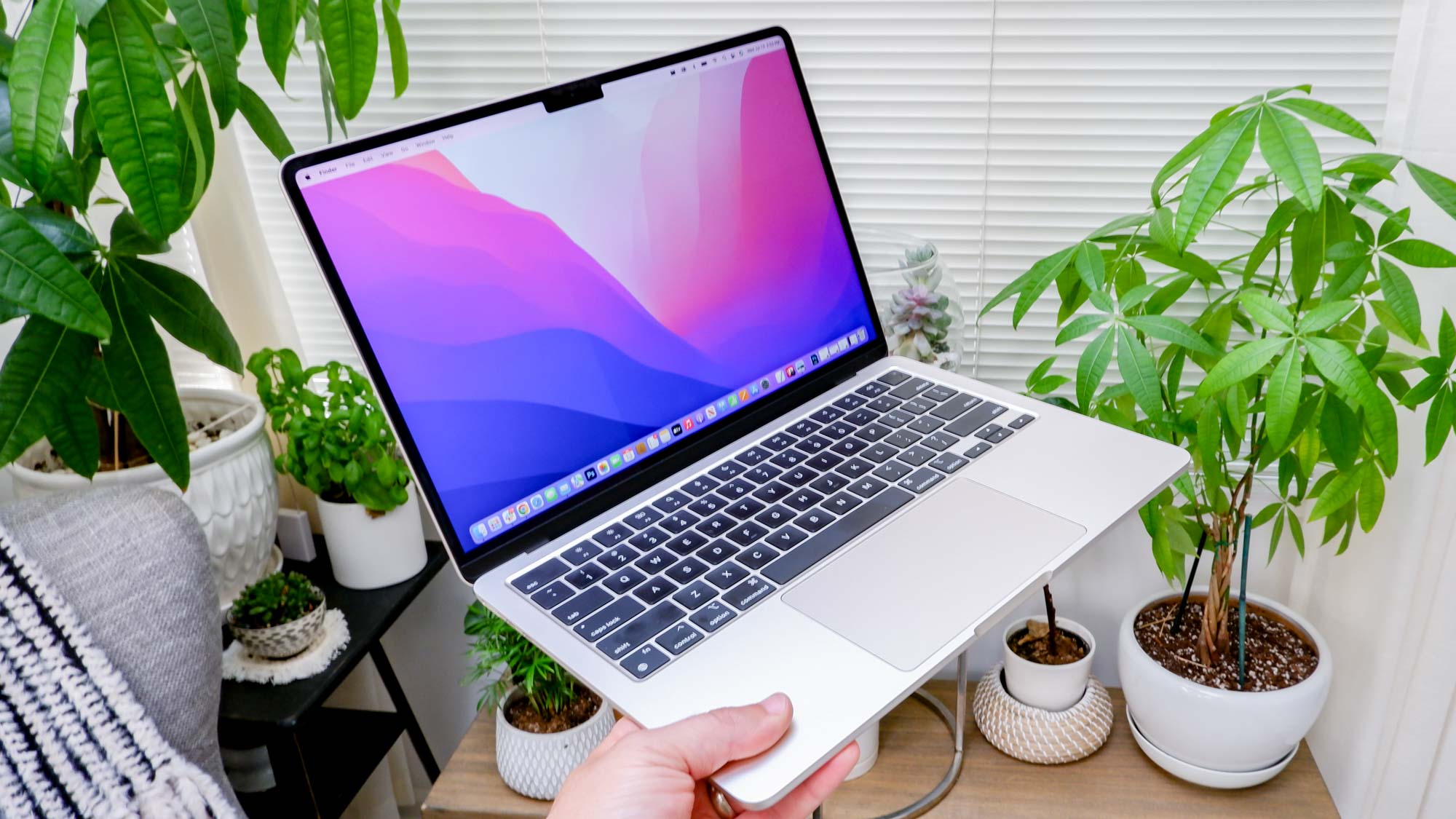
So while the XPS 13 Plus couldn't run Civ VI in anything approaching a reasonable framerate (22.9 fps at 1080p is playable but not enjoyable, in my view), we don't really know how well the Air M2 would run the game if it could display it at a native resolution. As it stands, the game likely runs better on the Air M2 but looks worse than it does on the XPS 13 Plus.
So is the MacBook Air M2 a better laptop for gaming than the XPS 13 Plus? Well, it's complicated. In terms of raw graphical performance, maybe -- but gaming on macOS is a different beast than gaming on Windows. For starters, many of the best PC games don't run natively on macOS, and even if you get them up and running performance often lags behind comparable Windows PCs.
However, the Air M2 has access to all the games on Apple's App Store, which the XPS 13 Plus does not. And with MacBooks potentially about to become legit gaming laptops thanks to macOS Ventura, at least one of my colleagues finally has hope for the future of Mac gaming.
Dell XPS 13 Plus vs MacBook Air M2: SSD speeds
When we tasked each laptop with running through BlackMagic's disk speed tests, we saw some intriguing results. The MacBook Air M2's SSD is clearly slower than the one in the XPS 13, as it managed average write and read scores of 2,800 and 2,210 respectively.
| Row 0 - Cell 0 | 13-inch MacBook Air M2 (2022) | Dell XPS 13 Plus (Ultra mode) | Dell XPS 13 Plus (2022) |
| Blackmagic Write Test | 2800 | 4058 | 3638 |
| Blackmagic Read Test | 2210 | 4529 | 4879 |
Those are decent numbers, but the XPS 13 Plus is clearly faster on both counts. In the same test it delivered an average write score of 3638 and average read score of 4879. These numbers are an abstract way of quantifying and measuring how fast a drive can read and write data, so they should give you some indication of which laptop is quicker to store and retrieve files.
Dell XPS 13 Plus vs MacBook Air M2: Battery life
Apple silicon has given every Mac that gets it a boost in both performance and power efficiency. That's why the new MacBook Pro M2 is the longest-lasting laptop we've ever tested, taking 18 hours and 20 minutes (!) to run out of juice in our battery test, which tasks the laptop with endlessly surfing the web via Wi-Fi with its screen brightness set to 150 nits.
| Row 0 - Cell 0 | 13-inch MacBook Air M2 (2022) | Dell XPS 13 Plus (2022) |
| Battery life (hours:minutes) | 14:06 | 7:34 |
The new MacBook Air M2 couldn't last quite as long in the same test, but it still lasted an impressive average of 14 hours and 6 minutes. That's nearly twice as much batter life as the Dell XPS 13 Plus, which ran out of juice in an average of 7 hours and 34 minutes.
I was personally hoping that the Plus would do a little better since the XPS 13 line has long had a hard time climbing past the 10-hour mark in our battery test. However it actually lasted a little less time than the Dell XPS 13 OLED we reviewed last year, which took nearly 8 hours (7:59) to die in our battery test.
Dell XPS 13 Plus vs MacBook Air M2: Bottom line
As you can see, based on the specs and numbers shared above, the Dell XPS 13 Plus with a 12th Gen Intel Core i7 CPU appears to deliver more CPU power than the MacBook Air M2 for roughly the same amount of money. And since both ultraportables are relatively similar in size and price, the XPS 13 Plus offers a more enticing package for speed freaks, which includes faster SSD speeds.
However, that doesn't mean it's a better laptop overall. The Air M2 is an excellent ultraportable with faster video transcoding, better performance in Adobe apps and nearly double the battery life. So if you need an ultraportable for creative work on the go, a new MacBook Air M2 might be just the thing. It also sports a brighter display (though sadly no OLED option) and a headphone jack -- something Dell cut from the XPS 13 Plus in the name of making it thinner and lighter.
Indeed, the XPS 13 Plus' lack of a headphone jack, coupled with the addition of a row of capacitive touch keys and a trackpad with haptic feedback, make it seem more like a MacBook than the new MacBook Air. Are these design changes a winner, or is the Plus a step in the wrong direction from the XPS 13, one of the best laptops on the market right now? Stay tuned for our full XPS 13 Plus review to find out!
Next: Speaking of comparisons, you can also check out our detailed look at the new Dell XPS 15 OLED 2022 vs MacBook Pro 16-inch.

Alex Wawro is a lifelong tech and games enthusiast with more than a decade of experience covering both for outlets like Game Developer, Black Hat, and PC World magazine. A lifelong PC builder, he currently serves as a senior editor at Tom's Guide covering all things computing, from laptops and desktops to keyboards and mice.
 Club Benefits
Club Benefits





